Saxophonist Donny McCaslin hasn't repeated himself since the ‘transformative’ experience of Blackstar. His work on David Bowie's final album introduced him to a wider audience in 2016, but he has spent the years since then resisting any obvious moves. McCaslin’s subsequent work has been equally difficult to classify as he builds a sound that welds his technical command to the raw voltage of rock, industrial electronics, and punk.
Lullaby for the Lost arrived via Edition Records as some sort of clue to where McCaslin's headed. His longtime ensemble—keyboardist Jason Lindner, bassists Tim Lefebvre and Jonathan Maron, drummers Zach Danziger and Nate Wood, guitarist Ben Monder—returns for nine jazz tracks that pull from inspirations as uncharacteristic as Neil Young's "Rockin' in the Free World," Nine Inch Nails' industrial punch, and Rage Against the Machine's fury. Lefebvre produces (he has become McCaslin’s closest creative partner), while Dave Fridmann—who has mixed records for The Flaming Lips and MGMT—handles several tracks with his uniquely spatial thinking.
The album’s title invites multiple interpretations without getting precious. McCaslin talks about personal and collective trauma, and the resilience of refusing to let pain snuff out your inner light. "Wasteland," the opener, channels a volcanic Neil Young performance directly, with McCaslin treating his saxophone like a lead vocalist in a post-rock outfit. Young also inspired the title track, with Monder's guitar creating what McCaslin describes as "beauty and yearning over a bed of angst—beautiful angst." "Celestial" captures how the group actually works (which McClasin describes as “team ball"). The track materialized during a soundcheck in Fano, Italy, Lindner dropping in a synthesizer sound "full of wonder," everyone else following where it went.
What stands out about McCaslin's current work is how little it resembles a jazz musician dabbling in rock music. This is music of its own sphere, pulling from scattered sources without owing fealty to any. Lullaby for the Lost insists that you meet it where it lives rather than evaluating it against your expectations.
Lawrence Peryer recently hosted Donny McCaslin on the Spotlight On podcast. McCaslin discussed the ins and outs of his new album, the ongoing evolution of the Blackstar Symphony, and how he aims to bring emotional authenticity every time he steps onto a stage.
You can listen to the entire conversation via the Spotlight On player below. The transcript has been edited for length, clarity, and flow.
Lawrence Peryer: The last time we sat down was in New York at the Bowie 75 store in early 2022. We were all still emerging from the COVID-19 pandemic. You were just on the cusp of firing back up. And now you've got so much happening—new album, the BlackstarSymphony, the EP. I'm curious, when you juggle projects at this scale, how do you maintain creative focus between them?
Donny McCaslin: I would say that I do tend to focus on one thing at a time. For example, when I'm working on a record, trying to fine-tune the songs or the orchestration, or later on, if it's the mix, the production choices and options, and going through all that stuff, I tend to get pretty obsessed and pretty deep in each thing as I go along.
With the Blackstar Symphony, for example, there was a long period at the beginning, the gestation period of choosing who was going to orchestrate which song, how many notes do I give, what direction, all those kinds of things. And then leading up to the first few performances, that was a lot of totally focused, all-in kind of work.
Part of what I like about that is it engages my creative imagination more deeply. Let's say I'm working on a song for the Blackstar Symphony, and then, put it down, dinner, family, whatever, and then I can tell my unconscious—sometimes the ideas are churning around. And then the next morning it's like, "Oh, well, what if on 'Heroes,' we did this instead?" It's not something that I did in my kind of allotted practice time, but something that, because I was in that headspace and thinking about it and just letting it roam around in the creative unconscious, there was work being done that was really beneficial, But I can only get into that headspace when I'm immersed in the music, if that makes sense, or when I’m inside a project.
Lawrence: When you mentioned the way maybe a song like "Heroes" might evolve or change—is the repertoire for the Blackstar Symphony fixed, or are you swapping music in and out? Is it a living, breathing organism?
Donny: The material with the orchestra is fixed. I mean, we do have a couple of extra songs that we could swap in and out theoretically. But we found a really good flow for the show. And so far, it's been only in the United States that we perform this; there's always a time limit when you're with unions and whatnot. So if you're going to do the show in one fell swoop, you have an eighty-five to ninety-minute limit, let's say. So we've kind of got music that gets us right to the edge of that limit. (laughter)
There was the song "No Plan." That's one that we have ready for orchestra, and I listened to it the other day after two years of not checking it out, and I just love the arrangement, I love the song, and I'm just hoping that we get a chance, probably when this goes to Europe, we'll have more time available. We can start swapping things out.
But all that to say, the orchestra stuff is fixed. However, I'm still tweaking things. On "Heroes," it was like, okay, we had a certain approach we took at the beginning, but now let's kind of get more of this line from the original song in there. And we're still refining the orchestra arrangements, I would say, but then the encores are wide open because that's just band and singers. So that's evolved, and we have swapped tunes in and out.
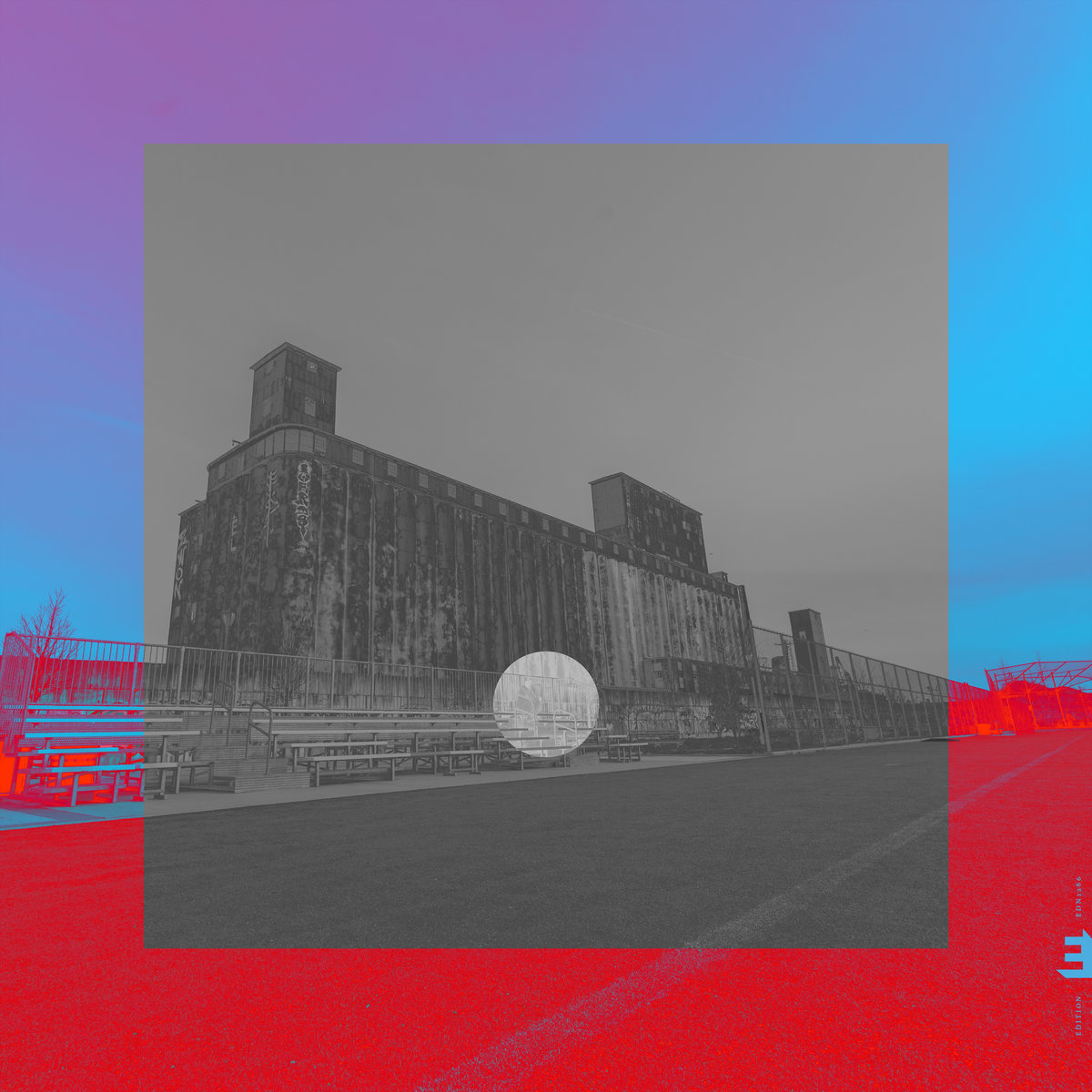
Lawrence: I want to pivot to your album Lullaby for the Lost. It's noteworthy in terms of whether you're coming at it from a jazz listener or even a jazz critic to hear about the various influences that you bring to the table. There’s an interesting mix of name-checks that one wouldn't think of in the context of a jazz fusion project.
Donny: The first thing I think of is that this band I've had for many years—Tim Lefebvre, Jason Lindner, Nate Wood, Zach Danziger, Jonathan Maron on bass. We've been playing together for a long time. Going through the Blackstar experience was a transformative experience for me personally, and I think for all the guys. But we've continued to evolve and influence each other.
So all that to say, there was a point where Tim Lefebvre showed me the Neil Young video from Saturday Night Live playing "Rockin' in the Free World" with Charlie Drayton.
Lawrence: It's unhinged.
Donny: It's unhinged and so primal. And I remember that moment. I was just sort of gobsmacked, like, this is so killing. And it kind of speaks to the energy that we play with when we get on stage together or what we strive for. Sometimes there's like a punk element about it. So I kept coming back to that as a reference point when I was imagining the writing.
I wanted to write a song that reflected how I felt about that performance. And that ended up being the song "Wasteland," which is the first one on Lullaby for the Lost. And then it was a deeper dive into Neil Young, and I really was into the record that Daniel Lanois produced, Le Noise. So, actually, "Lullaby for the Lost," the song, is my creative unconscious sort of processing Le Noise. And that's what came up for me.
And Nine Inch Nails, of course, and that's another one that's been important for Tim and me. And I was really into the Halsey record that Trent and Atticus produced, If I Can't Have Love, I Want Power. That's the vibe behind the song "Stately," which is a ballad. I have to say I was ruminating on the production and songwriting that Trent and Atticus brought to that record. That just captivated my creative imagination.
So those are a few examples, and what happens is obviously I'm coming from the jazz tradition, and I guess I just open myself to see how it's going to unfold in the way that feels like it has conviction and authenticity. I follow the spirit in those moments when we're in the studio or when I'm writing these songs. I think when I was younger, that would be the voice of like, you should try to do something a little hipper, more notes or odd meters or, just throwing out a couple examples of that voice of the oppressor that sometimes tells you you're not doing well enough, you're not doing something that's hip enough and is not going to get enough affirmation from whatever community or crowd. And I've wrestled with that over the years, and I think now, I try to follow my instinct, follow the map, even if I don't know where it's going.
I have these folks with me, who are such great musicians—the guys I mentioned earlier, who also contribute so much to the development of this music and how some of these songs come to life. I had the fortune of touring with the great Victor Lewis, the drummer and composer. When we're together playing with Victor, he'll sometimes say, "This is team ball." Team ball. And he'll really emphasize that. And I'm like, yes. That's what I believe in, and that's what I'm trying to describe to you about the creative process with the band. It's team ball.
On this record, I suppose I ultimately wrote most of the songs, but a couple were co-writes with Tim. One with Jason and Tim, and those came out of these moments of what we're all creating together. And then when we get into recording, they're all such creative people, and Jason brings this huge sonic, creative imagination and malleability. So he's adding layer on layer. He's a wizard, and it's not things I'm dictating, "Hey, can you use patch P37?" There's none of that. I'm just like, "Yeah, do your thing."
And the same with Tim. Tim produced the record and did such a great job, and he was adding a lot of synths and guitar. So, it’s really a team effort, and the team has built, I feel, more and more momentum over the years, which is really reflected in this record.
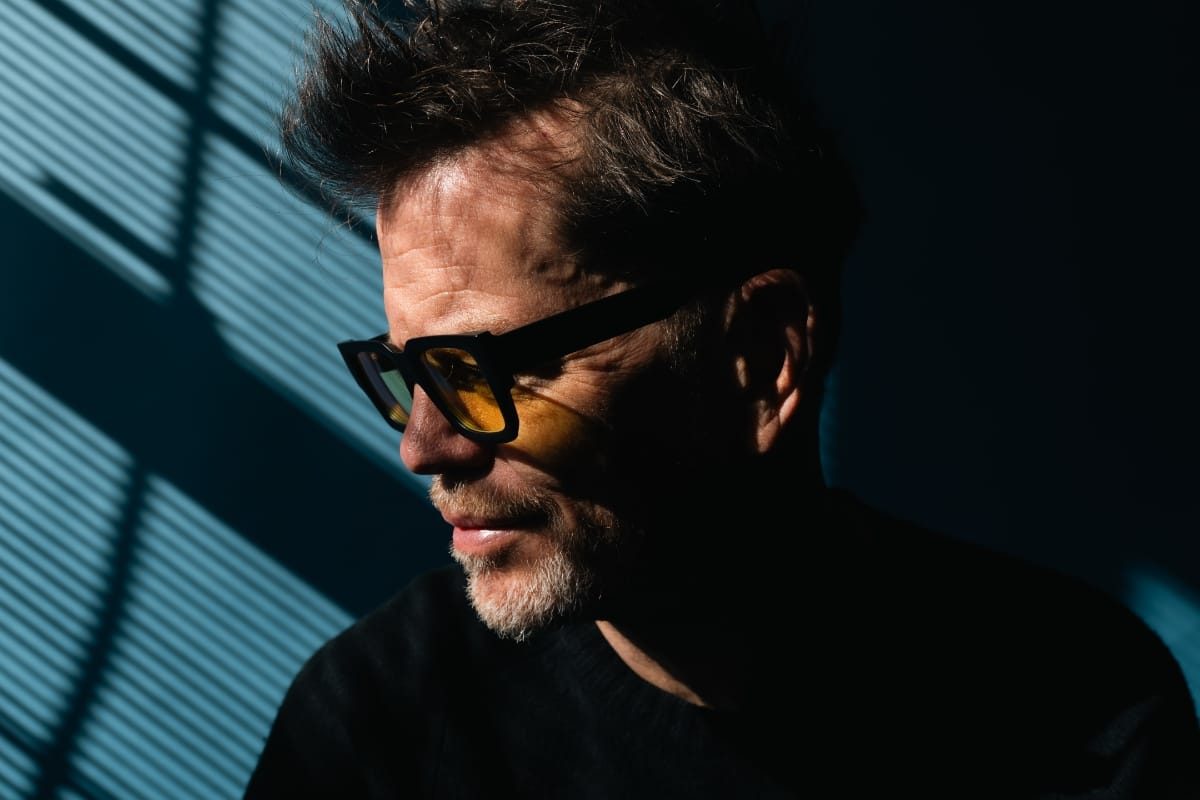
Lawrence: The title Lullaby for the Lost. 'Lullaby' to me conjures tenderness, and there's also some melancholy in there around both the word lullaby and the lost. What does the title mean to you?
Donny: I think it has multiple meanings. The two things you just described, melancholy and tenderness, that's part of it, part of the emotional feeling that it's coming from. You could look at world events now, or I could look at a period of my life, or it can be applied to different things. But ultimately, it felt like the right title to leave room for people to imagine whether there’s a literal meaning or if it’s more of a global concept.
It felt like it captured the spirit of the music, which has melancholy in there. I listened last night to "Mercy," which is the last track, and Ben Monder plays this intro, this soul intro that is fucking so beautiful. It's so beautiful, and then the melody happens, the song happens. The spirit of that was a meditation on the ongoing tragic events in the Middle East that we're all witnessing and an emotional response around that. So, that's one sort of meaning, but then there's also this punk energy that's in there. (laughter)
Lawrence: Going back in time a little bit, even to Stadium Jazz through something like "'Tis a Pity She Was a Whore" on Blackstar and certainly the thread continues on a lot of Lullaby for the Lost and even into the symphony show that I saw—there's this feeling of right up to the edge of chaos. It’s like harnessing the energy of that and taking it right before it all kind of explodes. And then, at the symphony show, there’s a lot of joy coming from that stage. How are all those elements—the sense of controlled chaos, the structure versus freedom, the joy—do you think about those as elements or guiding principles or ingredients?
Donny: I think it's an intuitive thing on my part, because I just try to play with as much emotional authenticity as possible at all times and really give myself over to the moment. I'm also grateful for the opportunity to be on stage, and I want to be fully present in the music, while also trying to enjoy myself. I realize what a privilege it is to be on the stage with the Seattle Symphony Orchestra playing this music that's so meaningful to me. It's really a dream come true, and I never want to take it for granted. And I want to show up for it every time and give the audience everything that I can, because I think that's what is supposed to happen when you're in those moments and you have the privilege of being on that stage. You must deliver to the very best of your ability. So I always strive for that.
And then the joy—part of that, of course, is just sort of my story that comes out through the music, and it's in the frame. And “Tis a Pity She Was a Whore," that’s such a banger of a song, and it calls for on-the-edge kind of playing. It was the first take, and I was playing so hard that, like, I squeaked or something happened. Mark dropped one of his drumsticks, and we were listening back, and I remember both Mark and me saying like, "Man, we'd really like to do another take." We felt like it got off the rails. And we did one or two more. But David loved that energy of the first one, that really raw, primal kind of thing. He really loved that. That's what that song is. So, I like to bring that kind of conviction to whatever I do.
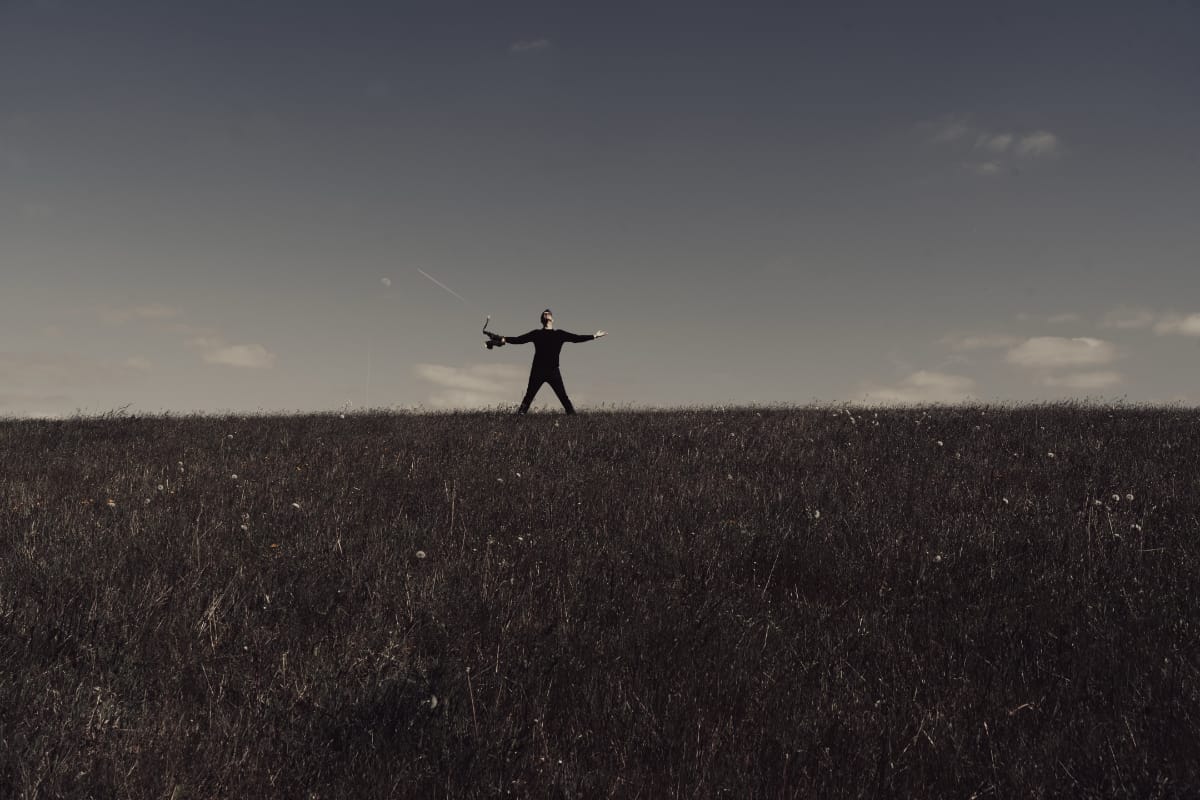
Lawrence: When we first talked about the Blackstar Symphony, you weren't able to really talk too much about it yet. You expressed this almost protective feeling about that music and being careful about how it might be presented live in David's absence. And I'm curious what approach makes Blackstar Symphony feel right and okay.
Donny: So what happened was I was in Europe doing a project with the Metropol Orchestra, Jules Buckley conductor, and it was a bunch of music of mine from Blow and some other tunes. We thought, "Let's do a couple of Bowie tunes." So "Look Back in Anger" was one, and "Warszawa" was another. And those are two of my favorite Bowie tunes. So before that, I had always felt like, besides us playing some instrumental versions of things, I just didn't really have any interest in doing it for the reasons you mentioned. I felt really protective of how special that experience was, and I didn't want to do anything that wasn't of the highest artistic integrity. I think David deserves that.
I was at dinner with Jules after rehearsal, and I said, "I got to tell you, 'Warszawa' sounded like a million fucking bucks, man." It was so beautiful with the studio orchestra, which is a big band plus a full orchestra. And Tim Davies did the orchestration. It was just so beautiful and compelling. I thought that would be a way to do Blackstar that would give it the artistic integrity that it deserves. And Jules was like, "Right on." (laughter) That's how it started. He was really my co-conspirator.
It was this sense of like, "This is a way that we could do that music, that not only has the DNA from the record, but allows the opportunity to create something new, to push it in some different directions that would make it feel like a new piece of art as opposed to just a note-by-note replication of the record," which wouldn't happen anyway because there's improvising on the record, which changes from performance to performance. But like, there are some spots on the symphony gig where it really goes into some different places. And I think that felt worthy; that's something that David would be into.
Lawrence: Gail Ann Dorsey’s presence adds so much.
Donny: Oh, yeah, a hundred percent. She’s one of the centerpieces of this project. And so, there were various moments in the gestation process where I would call her and say, “Okay, what do you think of this?” because she had been with David for so long. She was my teammate, and I would run things by her. And her response was always like, "He would love this. This is something he would absolutely love. This is the right way to do this." And so, that obviously helped and was affirming. And it just kept going to where it is now.
I know you saw it in Seattle. Boy, I hope there's another time for you to see it because I feel like it's really grown so much. And that's part of what makes it exciting to keep doing it. Yes, it's the same songs with the symphony, but a lot of the detail has changed and continues to evolve. It feels like it's getting deeper and deeper, and there's so much joy in it.
Lawrence: When I first heard Blackstar, I heard it in what I'll call a business context. I was asked to do the thing that so many people do, I signed the NDA, and I went down to an office, and they played the record for me at a volume that was just loud enough that we couldn't talk. We had to really sit there and listen to it all the way through. Afterward, I was asked, "What do you think?" And I said two things. One of which I wish I could take back. "If this is David's last record, he never needs to make another record." Of course, I didn't know what was going on at the time, but the other thing I said was, "This is an entirely new kind of music. Like, I don't even know what to call this music."
I've thought about that a lot in the context of your own music. I loved the album title Stadium Jazz. Like, to me, that's like the best thing I've ever heard. It's funny. It's got a lot going on. But I think about that when I was listening to Lullaby for the Lost, I was like, "Oh, it's some of that Donny McCaslin Stadium Jazz." (laughter) So there isn't a tradition for what you do necessarily.
Donny: Yeah, I agree. I mean, if somebody asks me, "Well, how do you describe Lullaby for the Lost?" it's hard because it's this hybrid of these influences that we've talked about today. I'm coming from the jazz tradition, but I also had a really open DNA of what I was into as a kid from Santa Cruz: reggae, and all that. And now it's really these influences on the record, as we talked about, like Neil Young. I'm not a Neil Young aficionado. I don't really know his discography. It's just these few things that I got into that had a direct result in these tunes. We talked about Nine Inch Nails, but there's also this kind of Rage Against the Machine vibe. "KID" has kind of a Police thing. I can find those influences, but of course, it's all mixed in with the language that we've already created and the experiences that we've had. So it is hard, but that's also good because it means that we're onto something potentially new or different, and that's hard to do these days. And so I took that as a positive.
Check out more like this:
 The TonearmR.U. Sirius
The TonearmR.U. Sirius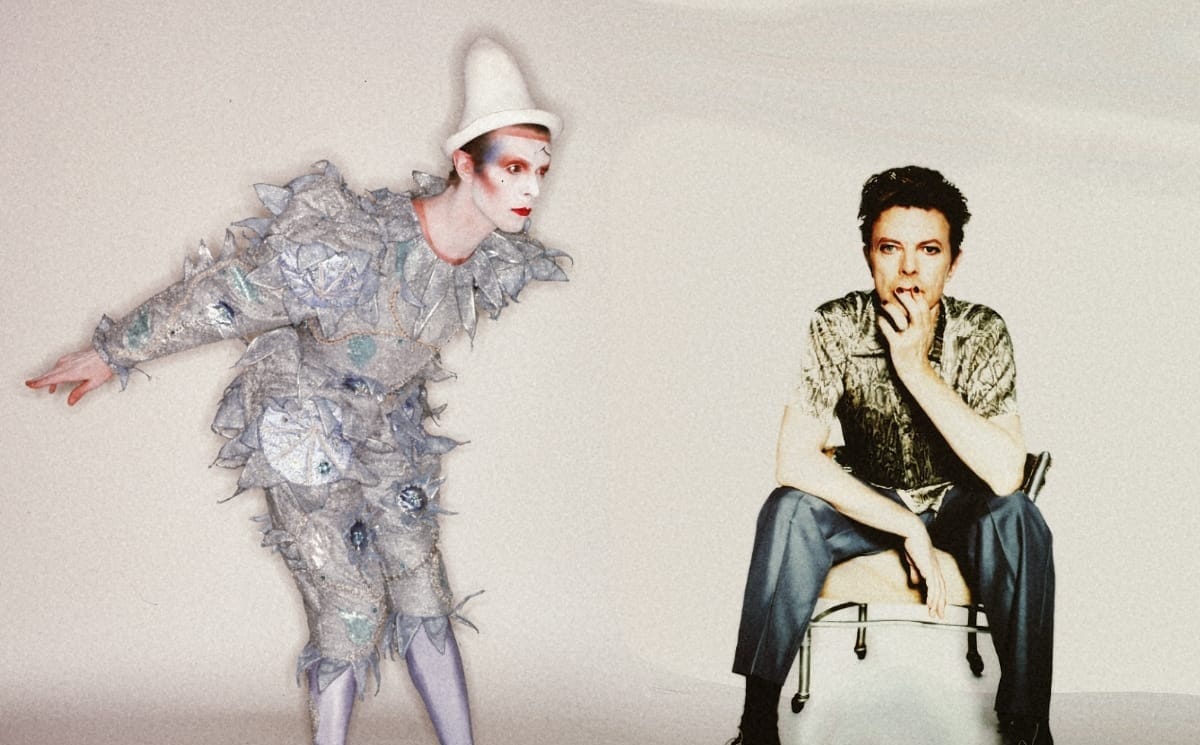
 The TonearmLawrence Peryer
The TonearmLawrence Peryer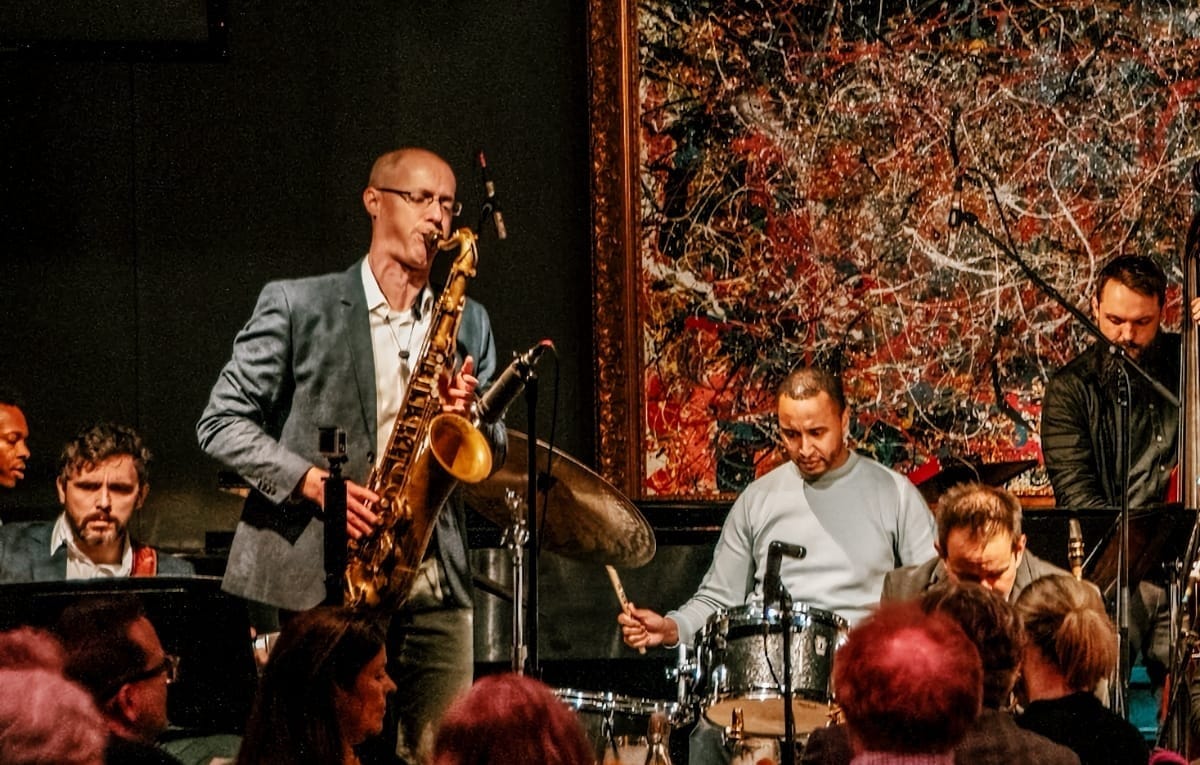


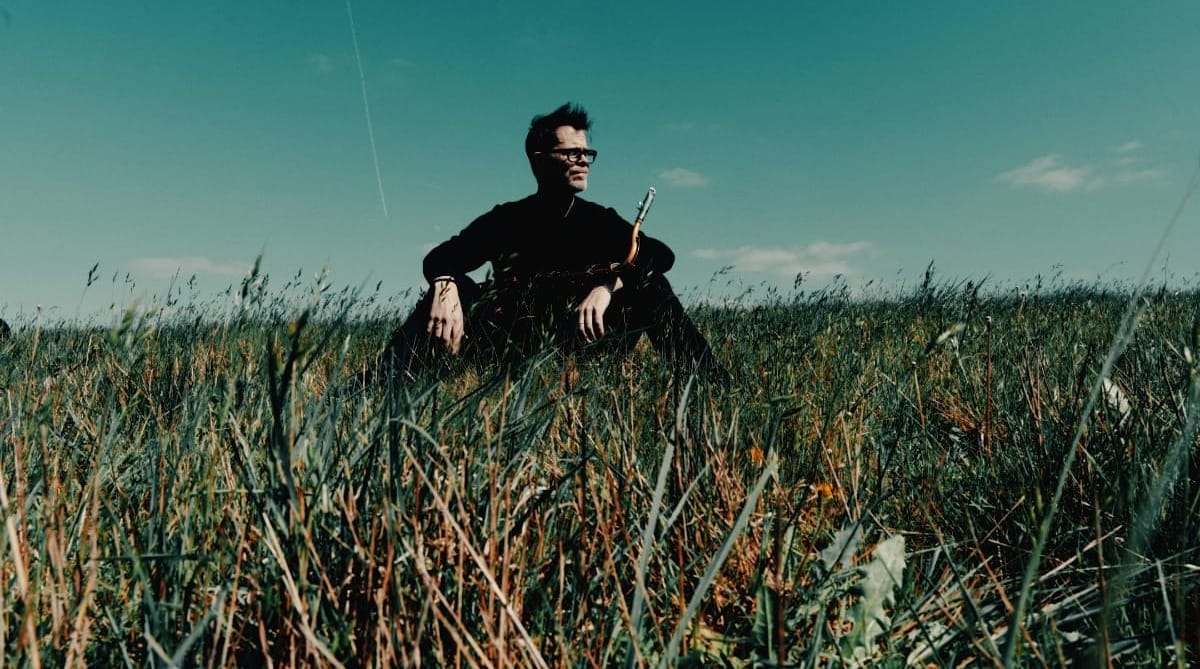
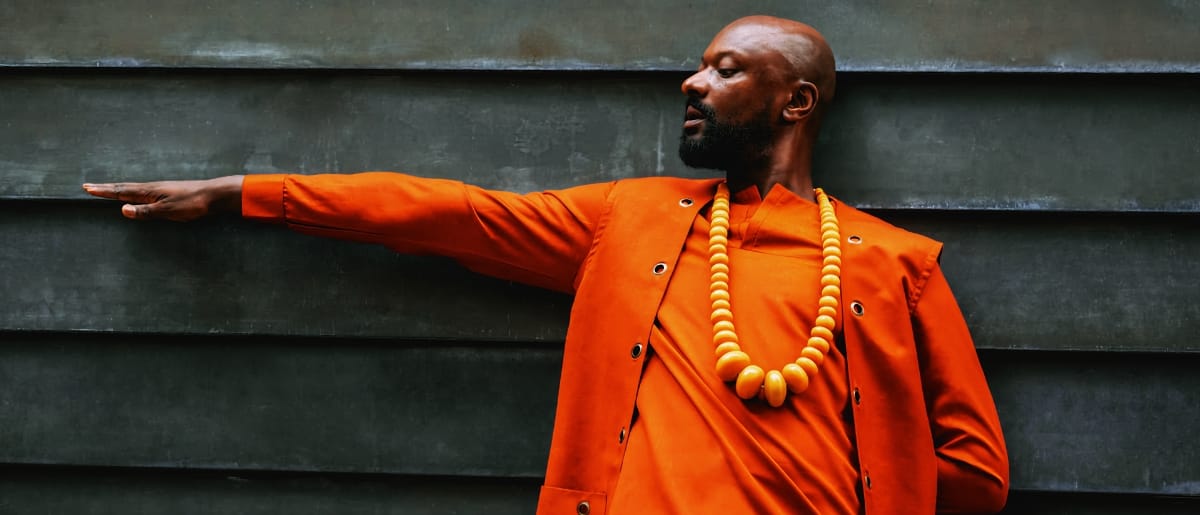
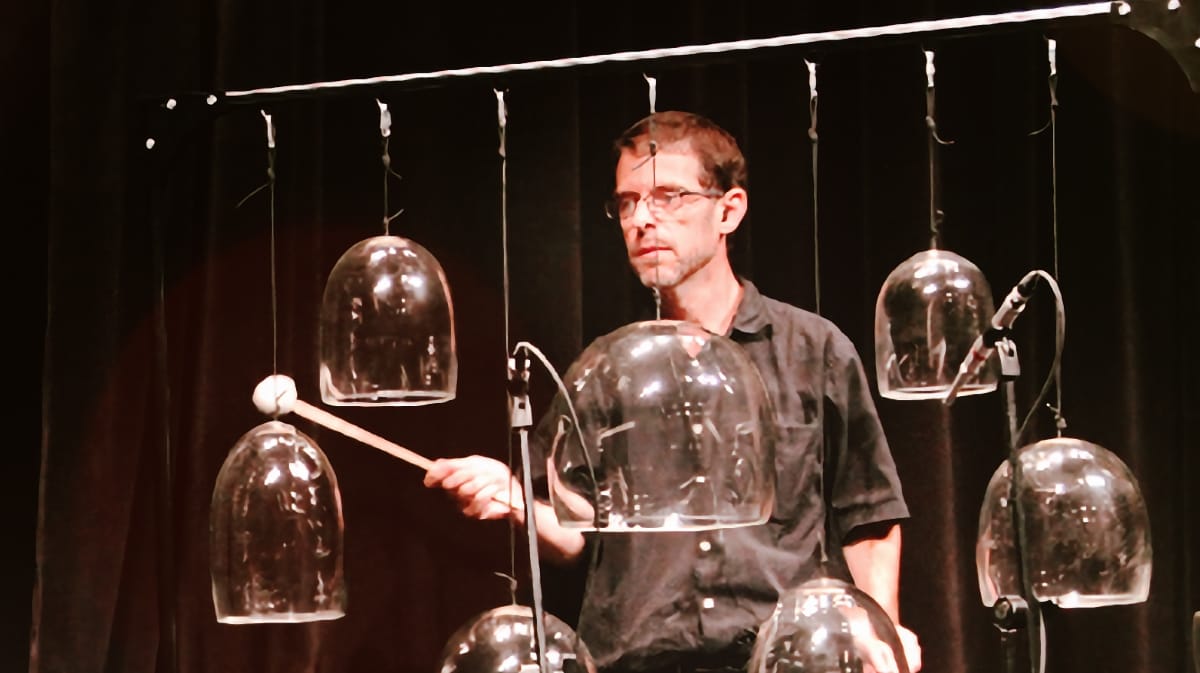
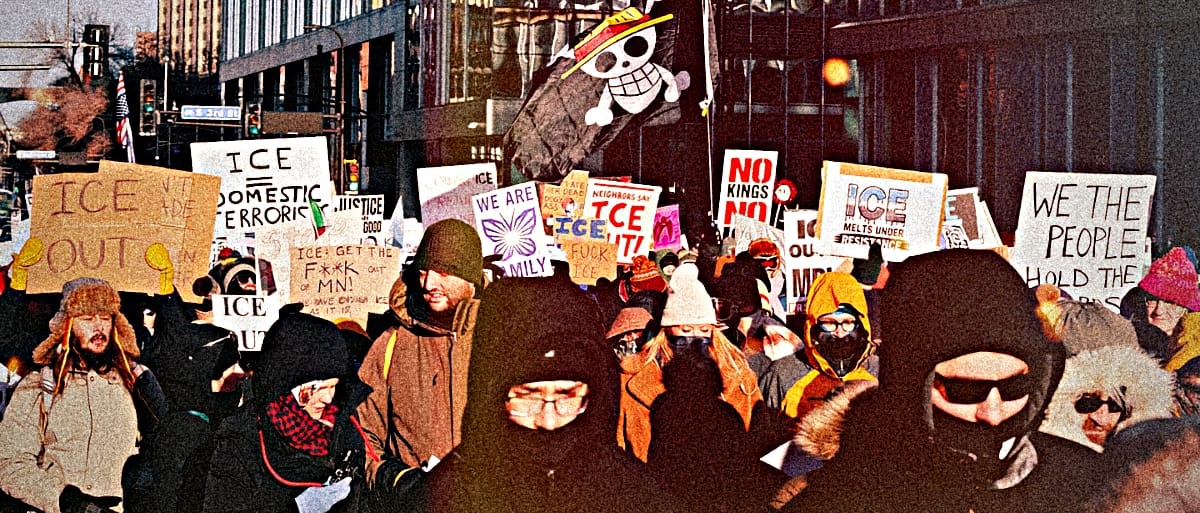
Comments